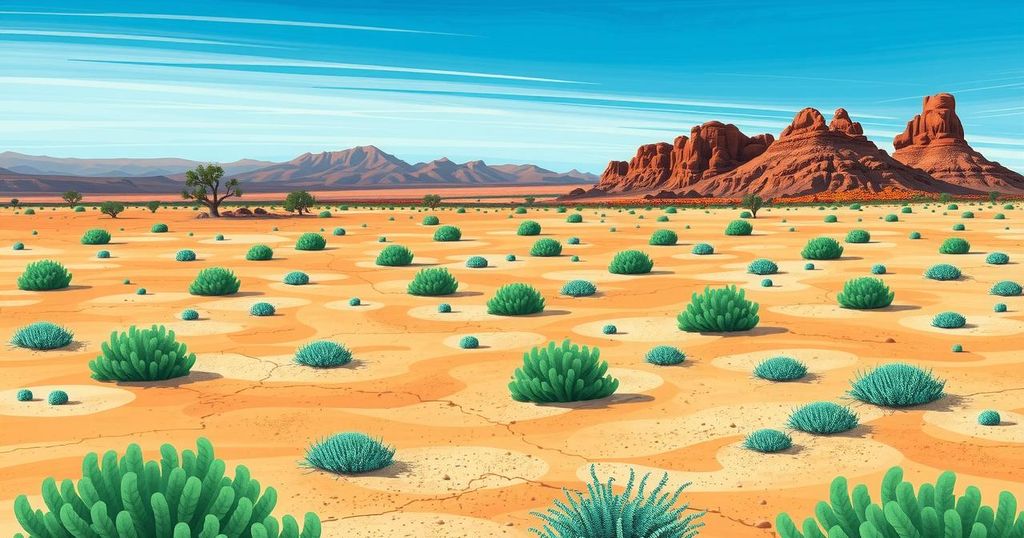Somalia Water Crisis Drought Update: March 2025
Somalia is experiencing a severe water crisis due to consecutive failed rainy seasons, with below-average rainfall predicted for the upcoming Gu season. Over 3 million people currently face acute water shortages. The situation is expected to worsen with rising temperatures and further diminished rainfall, especially in specific regions, impacting agriculture and livestock communities.
Somalia is currently facing a critical water crisis attributed to successive failed rainy seasons. The forecast for the forthcoming Gu season, which spans April to June 2025, predicts below-average rainfall. The Deyr 2024 rains were erratic and inconsistently distributed, particularly affecting states like Galmudug, Hirshabelle, South-West, Jubaland, and Puntland, leading to significantly reduced precipitation levels. This decline has directly impacted groundwater, affecting rural communities reliant on shallow wells and seasonal water sources.
Currently, more than 3 million individuals are experiencing acute water shortages, a number anticipated to increase based on the Gu rains’ performance and the extent of humanitarian interventions in the WASH sector. The expected below-average rainfall along with rising temperatures will likely exacerbate drought conditions, worsening the strain on already limited water resources. Projections suggest a high likelihood of below-normal rainfall in regions including Gedo, Hiraan, Middle Shabelle, Bakool, Bay, and areas inland of Galguduud and Mudug, which will intensify water scarcity, diminish agricultural yield, and heighten pressure on communities dependent on livestock.
In summary, Somalia is enduring a severe water crisis exacerbated by consecutive failed rainy seasons. With predictions of below-average rainfall for the upcoming Gu season, the country faces an increasing number of individuals suffering from acute water shortages. Urgent humanitarian interventions are necessary to mitigate the impact of worsening drought conditions, particularly in regions that depend heavily on limited water sources and agriculture.
Original Source: reliefweb.int




Post Comment